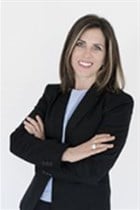Though it has been warmly received by many commentators, it has also been heavily criticised by others, with Ritson calling it "the worst marketing move of the whole year". With around 26 million views for the official video on Youtube and 711,000 likes compared to 1.2 million dislikes (as of 25 January), the campaign has certainly polarised viewers, and potentially alienated as many consumers as it has engaged.
Lack of empathy
The way the ad twists the Gillette payoff line - “the best a man can get” into “the best a man can be” is clever; what’s more, the campaign reflects the wider trend we see towards brands embracing a purpose of social good in their pursuit of profits.
However, based on GfK research, I think the video shows a lack of empathy in its execution and perhaps a limited understanding of how male consumers today see themselves and the world around them.
Masculinity is evolving. Men are redefining the idea of masculinity in a world where they embrace the notion of gender equality - especially true among Generation Z. The global GfK ConsumerLife Study reveals that the traditional mindset is declining globally over time (22% in 2014 down to 16% in 2018) with the emerging socio-rational value segment (up 4%).
This trend is especially evident in South Africa. Gillette’s short film ignores the progress and change of the past decade and isolates its audience by criticising them. An insert that recognised men's movement from so-called toxic masculinity and supported them as they claim a new masculinity may have resonated better with the audience and inspired men to be better, in line with the brand’s intent.
